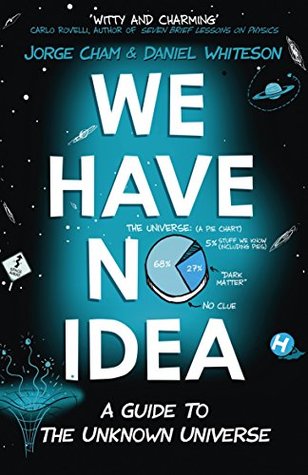More on this book
Community
Kindle Notes & Highlights
by
Jorge Cham
Read between
September 20 - September 28, 2020
Carl Sagan once said, “Extraordinary claims require extraordinary evidence.”
space is not a static empty backdrop on which the theater of the universe plays out. It is a physical thing that can bend (in the presence of massive objects), ripple (called gravitational waves), or expand.
There’s no real intuitive reason why the two should be the same. One of them (inertial mass) is how resistant something is to being moved, and the other (gravitational mass) is how much it wants to be moved by gravity.
There are also times when our intuition is an obstacle to understanding the physical world, in which case it is better to rely on math to guide us. For example, when trying to understand the bizarre behavior of quantum particles or income tax forms. In these situations, all you can do is follow where the math leads you. Assuming you crunched the numbers right, you can trust that math describes reality more accurately than your intuition.
Stephen Hawking has suggested that asking “What came before the Big Bang?” is like asking “What is north of the North Pole?” At the North Pole, every direction you walk points south, and there is no more northness. This is just a feature of the geometry of the Earth. If space-time was created at the moment of the Big Bang, then it’s possible that the geometry of space-time means that there is no satisfactory answer to the question of what came before (i.e., there is no “before”).
Stars are essentially fusion bombs that are continually exploding; the only thing that contains them is their gravity. Gravity may be weak, but gather enough mass together and it can contain continuously exploding nuclear bombs for billions of years.
How long do technological societies survive? Our limited experience is difficult to extrapolate from, but even human history is filled with cycles of civilization and collapse, on timescales of hundreds of years. Our society is much better equipped to destroy itself than any that came before. Will we be listening for messages in 500 years, or 5,000, or 5 million? Will we even exist?


